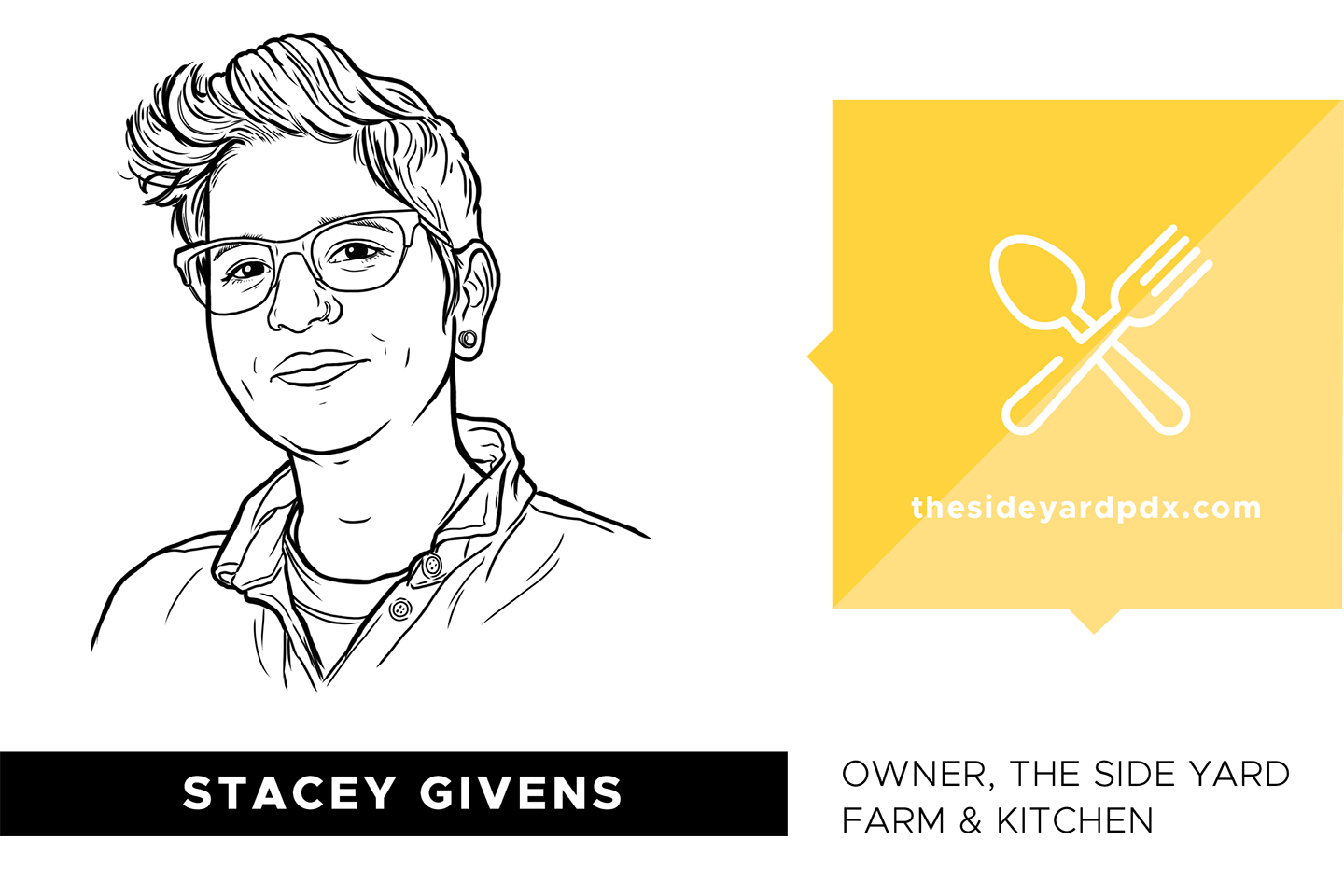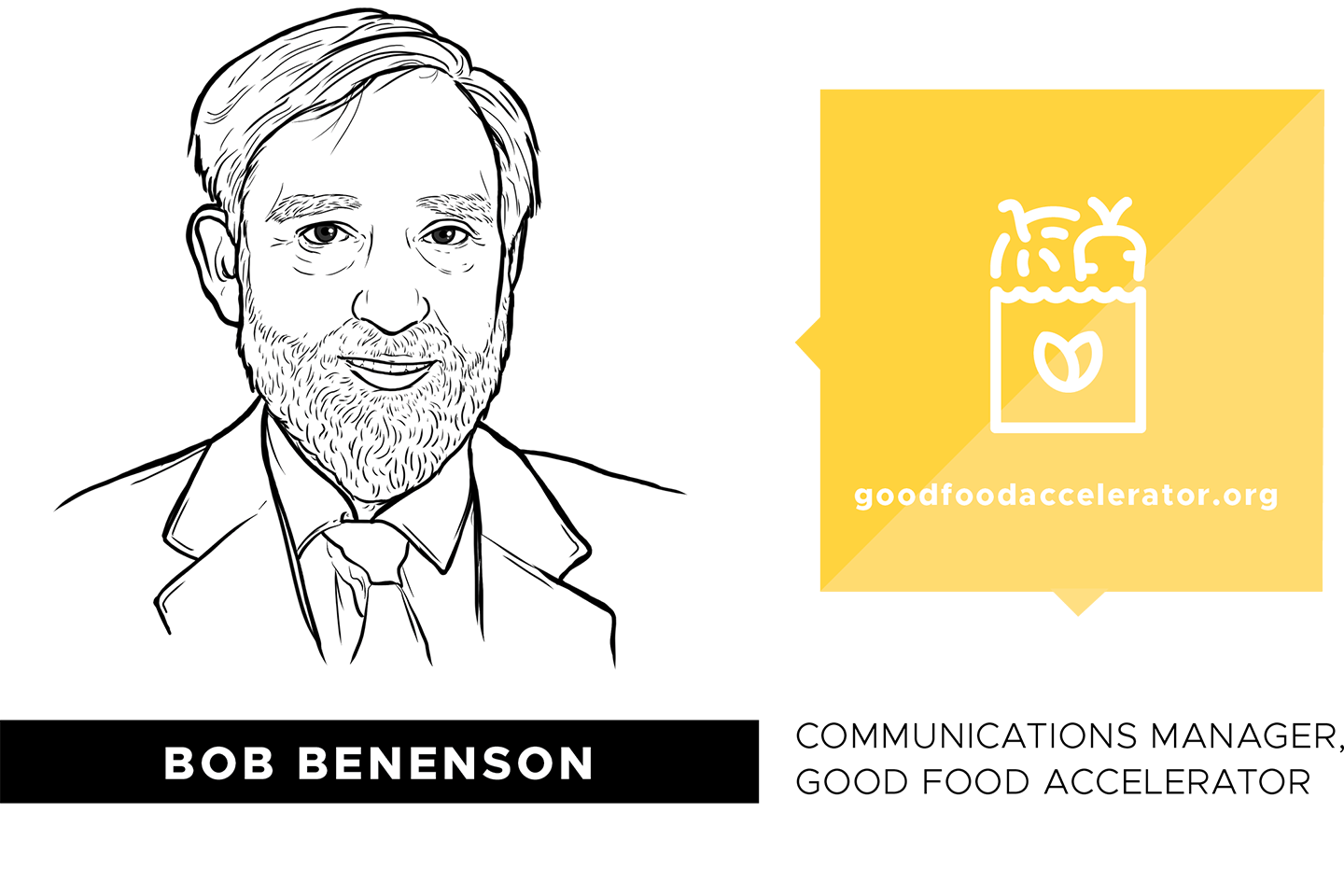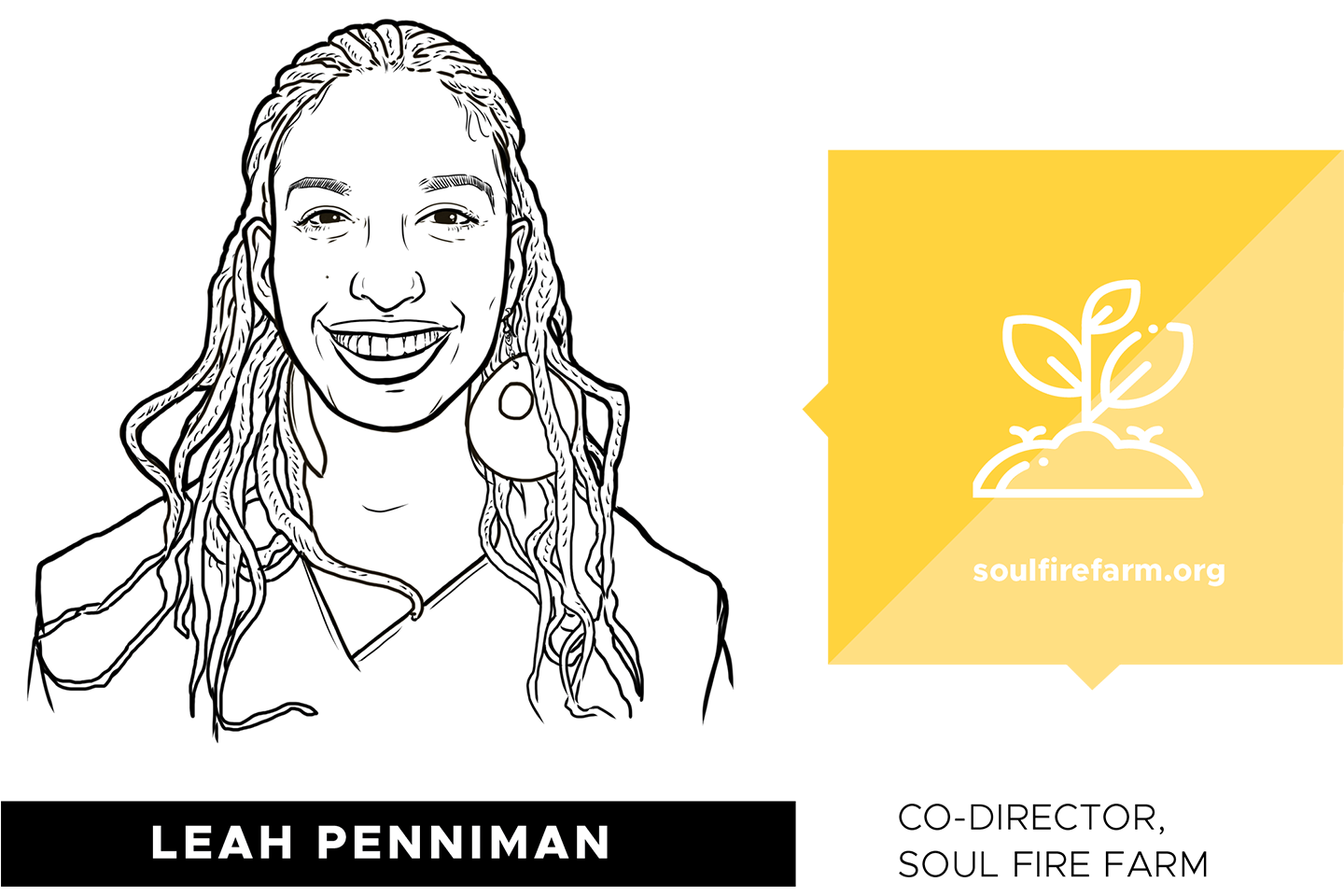
What are five words that capture what mentorship means to you?
Family, honor, pride, knowledge, connection. The connection you gain from a mentor is like no other. I felt like my mentor was part of my family after a while. It is such an honor to work with someone with the years of knowledge that I so desperately want to learn, and the sense of pride I gained within myself once I began practicing what I’d learned is priceless.
How do you try to mentor others?
I show them the importance of my seed-to-plate philosophy. If they are a farmer, they are putting hours in the kitchen, too. If they are an aspiring chef, they are getting their hands dirty out in the field. It’s teaching them the connection from seed to plate, the whole process from beginning to end.
How or why can mentorship help the next generation of food professionals?
There is no app or online video that can replace the value of a good mentor. These days, more and more young cooks and farmers are turning to social media for guidance. Social media cannot teach you what a person full of years of knowledge and wisdom can teach you.

What are five words that capture what mentorship means to you?
Connection, approachability, compassionate, ability and willingness.
How do you try to mentor others?
In my experience, mentoring occurs less formally and unfolds more naturally. I make a habit of not forcing my views on others and do my best to remain open to people soliciting my opinion. Mentoring is often seen as one-sided or hierarchical in that one individual is a teacher, the other a student. The reality is that it’s a two-way street where each party should be respected for the depth of knowledge they inject into the conversation.
How or why can mentorship help the next generation of food professionals?
I would like to see the next generation deliberately incorporate the good into their own approach, while maintaining their unique purpose and passion. Forging a career path and inserting oneself into the world is scary, and it takes courage and stamina. A mentor can encourage you to believe in yourself and remain open to ideas, opinions and the learnings of the generations that came before you. The importance of being open has helped me in my career, as I can now sit across from anyone, even those with differing opinions, and appreciate where they are coming from. Understanding this has helped me bridge gaps and solve problems, with everyone’s best interests in mind.

What are five words that capture what mentorship means to you?
Creating a Good Food legacy.
How do you try to mentor others?
Networking is crucial — not the easiest thing to do for some people, but it is absolutely essential to build a community. I left a 30-year career as a political journalist in D.C. when I moved to Chicago in 2011 and built a second career as a Good Food advocate from scratch by reaching out and trying to get to know everyone in the sector. My second piece of advice is basically The Golden Rule: Always be kind. There are, unfortunately, successful people who think of themselves as self-made, but no one gets far without the assistance of others — something none of us should ever forget.
How or why can mentorship help the next generation of food professionals?
Sharing our knowledge about Good Food, how the movement has advanced and how far it has to go is absolutely essential to accelerating its growth and building a better food system. My crash course in late-career reinvention benefited hugely from my ability to learn from the experiences of others, some of them pioneers in the Good Food movement. Today, I work mainly with people much younger than my 62 years. How could I not want to assist and encourage them to make the world better than I will leave it?

What are five words that capture what mentorship means to you?
Each one teach one. Legacy.
How do you try to mentor others?
I believe that it is crucial to be mentored by people whose experience mirrors our own. As a Black Kreyol farmer and activist, I strive to provide experiences for new farmers that are a reclamation of our belonging to land and a place of healing from the trauma of land-based oppression. We engage hands, head and heart in learning the lessons of this sacred Earth.
How or why can mentorship help the next generation of food professionals?
We didn’t arrive here on our own. Our ancestors — Fannie Lou Hamer, George Washington Carver, Booker T. Whatley and others — gave us examples of sustainable farming and non-extraction economics, and even they had mentors. We need mentors to show us the way and to pick us up when we fall.



















